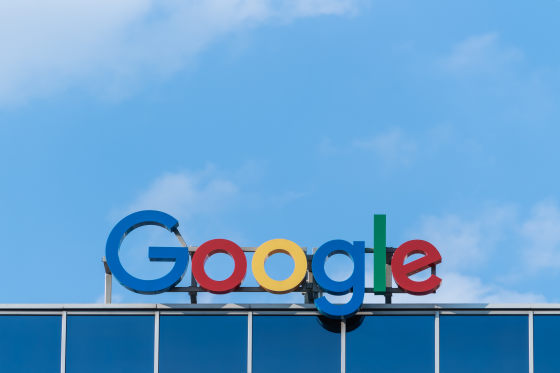Oracle severely criticizes ``FLoC'' that Google is about to introduce, ``I am trying to solidify the dominant system on the pretext of strengthening privacy''

From the viewpoint of privacy, the use of
Google's Privacy Sandbox—We're all FLoCed
https://www.oracle.com/news/announcement/blog/google-privacy-sandbox-030721.html
What is 'FLoC' that Google is about to introduce?
◆ Targeting advertising itself will continue
◆ Google can continue to track users by including themselves in the 'first party'
◆ Google's past and future strategies
What is 'FLoC' that Google is about to introduce?
Google, one of the world's largest advertising companies, uses third-party cookies to track the behavior of users on the Internet, and based on information such as interests and concerns obtained, ads that are likely to have a high click rate. Distribute and make money. Such a method called targeted advertising is highly effective, but in recent years it has been regulated as it is widely used in behavior tracking and infringes on the privacy of users.
Following browsers such as Safari and Firefox successively blocking third-party cookies, in 2020 Google finally announced that it would 'abolish third-party cookies within two years.' On top of this, Google said that it would build a new ``advertising mechanism that replaces cookies,'' and continues to discuss the new mechanism in its proposal for a privacy sandbox .
What kind of 'cookieless advertising system' is Google trying to create? |GIGAZINE.BIZ

Among the mechanisms proposed by Google, an API called 'FLoC' is under experimentation on the premise of introduction at the time of article creation. FLoC is an abbreviation for Federated Learning of Cohorts, and simply put, ``users are classified into groups of thousands and targeted advertisements are performed based on the interests and interests of each classification.'' . Google says that this method does not lead to privacy violations because it does not track individual users.
◆ Targeting advertising itself will continue
Ken Gluck, Oracle's representative director and vice president, said in a blog that FLoC is still a targeting advertising mechanism that classifies users and displays advertisements, so the problem of targeting advertising will continue. Point out that first. FLoC is a concept like 'audience' on Facebook, but such targeting advertisements are 'showing high interest rate short-term payday loan advertisements to people in financial difficulty' and 'showing real estate advertisements to specific races' It makes it possible to say 'no' and realize discriminatory behavior. In fact, such discrimination was rampant in Facebook ads.
◆ Google can continue to track users by including themselves in the 'first party'

Google clearly states that it blocks third parties, but this does not apply to the collection and use of first party information. Mr. Gluck also pointed out that there are pitfalls in the definitions of ``third party'' and ``first party''.
For example, when someone calls his father, the perception of the 'parties' is 'me' and 'father', not Verizon, which provides the communication service. If this is replaced with the Internet, the parties should be the 'users' who browse the website and the 'websites' visited, but Google says that 'Google' is included there.
FLoC is an API based on the browser Google Chrome. People who create a Google account or use Chrome or Android will opt-in to agree to the terms of use ``Accept Google as a first party'' when using it, but this will allow Google to be the first party. Track users and collect information such as behavior, interests, and concerns, which can be used for advertising.
At the time of writing, Chrome has a 65% share of the global browser market, and Android has a market share of over 70% in mobile OS. Google, which controls both 'browser' and 'OS', can collect information for advertising without using cookies by using such a mechanism. On the other hand, advertising companies treated as third parties will be eliminated, so Google's monopoly will be strengthened.
◆ Google's past and future strategies

In 2007, Google acquired Double Click , an internet ad serving infrastructure company, wiping out competitors for third-party data collection and gaining a dominant position in internet advertising. At the time, Google said , 'Google cannot match the information DoubleClick collects with Google's search data. We do not have the right to use information owned by our customers for such purposes.' I was . However, as of 2016, Google said it was linking previously anonymous browsing data with personally identifiable data.
And after building a dominant position in browsers, advertisements, OS, etc., Google is trying to expel parties other than themselves from the sandbox (security mechanism) on the pretext of privacy, Mr. Gluck. Google tries to make consumers believe that they respect the privacy of their users, but for the reasons mentioned above, Google Search, Chrome, Android, YouTube, etc. are not included in the new sandbox. No, says Gluck.
Google states that ``other browsers are also blocking third-party cookies,'' and in fact, Safari and Firefox are blocking, but they are not monopolizing the market. We are in a different position. For this reason, while Safari and Firefox's third-party cookie block, which has already been implemented, is aimed at 'improving privacy', Chrome will 'exclude competitors'.
Gluck argued that if Google really aims to 'improve user privacy', it should apply the rule to 'abolish third-party tracking' to itself.
Related Posts:
in Web Service, Posted by darkhorse_log







